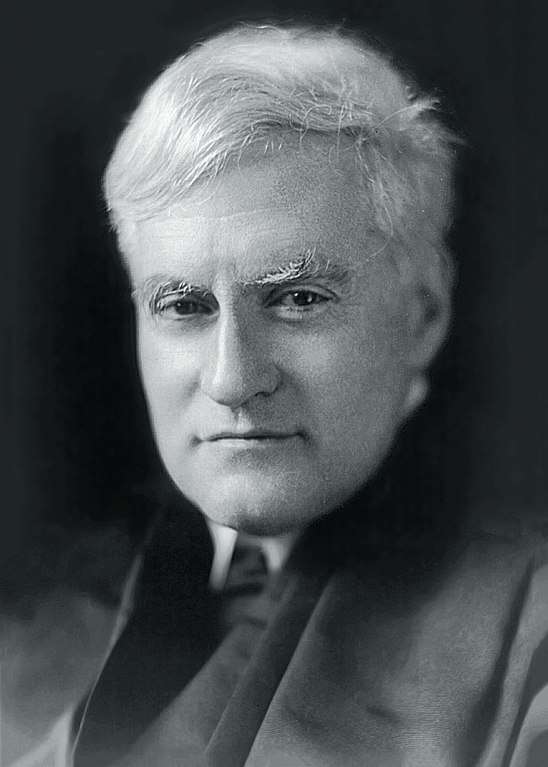The Volokh Conspiracy
Mostly law professors | Sometimes contrarian | Often libertarian | Always independent
Today in Supreme Court History: March 14, 1932
Editor's Note: We invite comments and request that they be civil and on-topic. We do not moderate or assume any responsibility for comments, which are owned by the readers who post them. Comments do not represent the views of Reason.com or Reason Foundation. We reserve the right to delete any comment for any reason at any time. Comments may only be edited within 5 minutes of posting. Report abuses.
Please to post comments



Continuing the trend of grotesque eyebrows...
It's a wonder any of these people were able to make good legal decisions, after making such bad facial hair decisions.
I'm not going to fault anyone for fierce eyebrows, but I will observe that presidents were clean shaven until Lincoln, and then had facial hair through Taft (except Johnson). And early Supreme Court justices did not have beards or mustaches, and the last Justice with a beard was Charles Evan Hughes, originally appointed by Taft. I'd guess the Senate saw similar shifts in fashion regarding facial hair.
But for modern justices, I think there is evidence correlating beards with bad legal decision making.
Sicurella v. United States, 348 U.S. 385 (decided March 14, 1955): Jehovah’s Witness can be awarded conscientious objector status even though willing to fight if Jesus commands him in “theological war” which does not involve “weapons of warfare”; refusal to participate in “shooting wars” suffices
Handly’s Lessee v. Anthony, 18 U.S. 374 (decided March 14, 1820): island in Ohio River is part of Kentucky; Indiana, recently a state, only owned land up to low-water mark on its side (notes that island had been granted to plaintiff by Kentucky, to defendant by Indiana, and the effect of Virginia’s — which then included Kentucky — 1781 yielding to the United States all land north of the Ohio)
The Josefa Segunda, 18 U.S. 338 (decided March 14, 1820): Venezuelan privateer who had taken over slave ship which was forced to disembark in United States due to running out of food does not forfeit vessel even though in violation of 1807 statute forbidding slave trade; was acting on orders of his government (this was when Venezuela was rebelling against Spain)
Lewis v. United States, 348 U.S. 419 (decided March 14, 1955): upholding against Fifth Amendment self-incrimination attack conviction for not paying “wagering” (operating numbers racket) tax even though wagering was illegal (overruled by Marchetti v. United States, 1968, summarized here, see January 29)
Northern Securities Co. v. United States, 193 U.S. 197 (decided March 14, 1904): Sherman Antitrust Act does not interfere with operation of contracts (note that the Constitution prohibits only States and not the federal government from interfering with contracts, art. I, §10) (here, Act violated by formation of new corporation for purpose of buying up two competing railways to create monopoly)
Atlantic Coast Line Ry. Co. v. Temple, 285 U.S. 143 (decided March 14, 1932): trial court should have directed verdict for defendant railroad where car overturned, killing the decedent engineer, allegedly due to improperly secured rails which spread; there was evidence of men working on that stretch, of “pulling” tools found nearby, of possible sabotage, but nothing to suggest proximate cause negligence
Stevens v. The White City, 285 U.S. 195 (decided March 14, 1932): water damage to new yacht being towed from Morris Heights, N.Y. to Newark, N.J. not necessarily due to negligence of tug operator; could have been caused overnight by driftwood hitting deck; reverses verdict for plaintiff
Comm’r of Internal Revenue v. Phipps, 336 U.S. 410 (decided March 14, 1949): still have to pay taxes on assets even though went through tax-free reorganization (surplus canceled out by deficits in other predecessor corporations) with no continuity of character of the corporation
Eaton v. Brown, 193 U.S. 411 (decided March 14, 1904): Holographic (handwritten by testator) will effective even though it began: “I am going on a Journey and may not ever return. And if I do not, this is my last request . . . ” (She did return.)
De la Croix v. Chamberlain, 25 U.S. 599 (decided March 14, 1827): plaintiff not entitled to land he was granted because not surveyed; the grant, by the Spanish when they ruled that part of Alabama, merely ordered a survey, and not registered in land office
First Hispanic Justice!
Justice Cardozo's ancestry is Portuguese. Is that Hispanic?
At the time, the federal District Court in DC handled local cases. Now DC has its own courts.